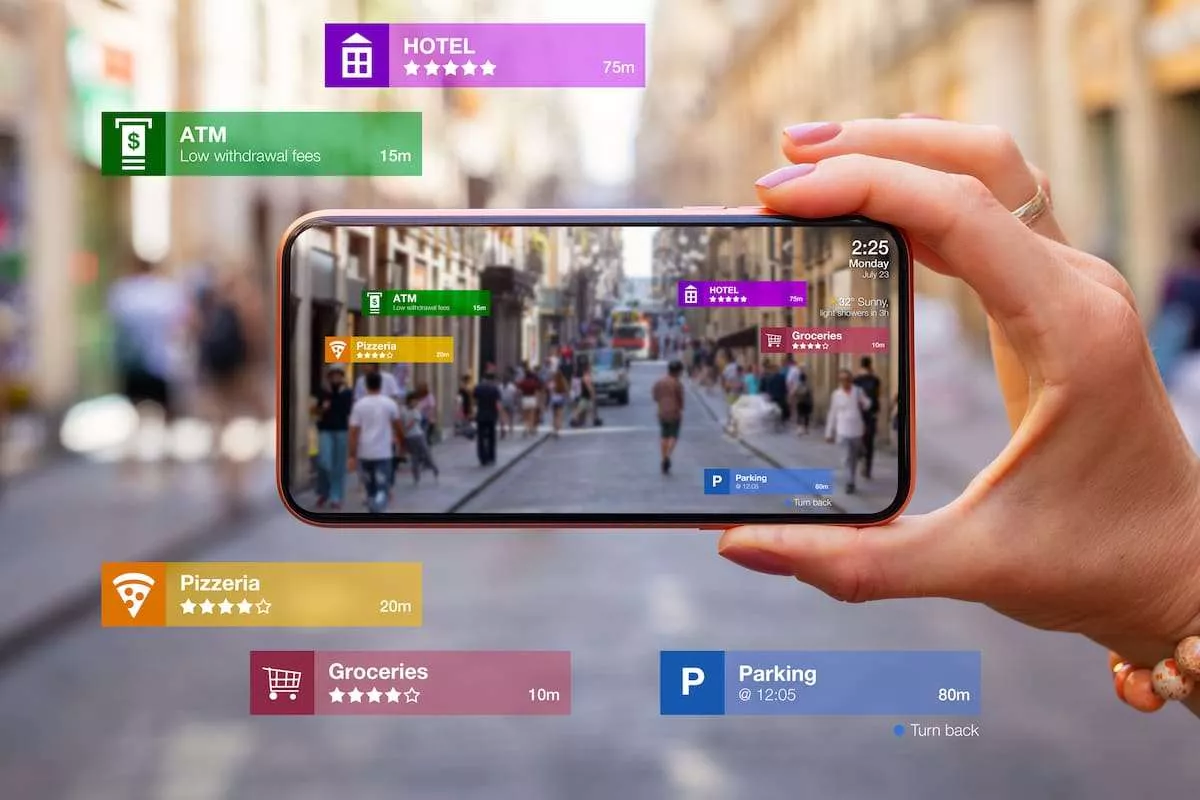Guide on How to Use AI in Travel Business

In the travel industry, staying ahead demands not just adaptability but foresight. Artificial Intelligence solutions have emerged as the linchpin for businesses aspiring to redefine operations and elevate customer engagement. Recent studies indicate a remarkable increase in AI’s influence on travel market revenue, surging to 21% in 2021 from 9% in 2018. Projections foresee this trend continuing, with AI expected to contribute to 32% of hospitality revenue by 2024.
In our blog, we will focus on the business-centric facets of AI in travel sector, providing insights into how forward-thinking companies can leverage top-notch technology to optimize processes, personalize services, and boost the overall travel experience.
Basics of AI for the Tourism Sector
AI covers a range of technologies that enable machines to simulate human intelligence. Within AI, there are various types, including machine learning, natural language processing, and computer vision. These technologies collectively empower travel businesses to process vast datasets, make forecasts, and boost decision-making processes.
Generative AI is a cutting-edge technology within the AI spectrum, enabling machines to create new content, such as pictures, text, or even entire datasets. In the context of hospitality businesses, generative AI can be employed to create personalized travel itineraries based on individual preferences, offering unique and tailored experiences for each traveler.
Conversational AI is focused on enabling natural and interactive communication between machines and humans. In the travel sector, such technology finds application in chatbots and virtual assistants, enhancing customer interactions. Chatbots equipped with conversational AI can assist travelers in real time, providing information on bookings, travel routes, and local suggestions.

We are confident that we have what it takes to help you get your platform from the idea throughout design and development phases, all the way to successful deployment in a production environment!
Main Applications of AI in Travel Industry
Leveraging Artificial Intelligence in the hospitality business is paramount for gaining competitiveness and meeting the evolving needs of modern travelers. Let’s delve into five basic applications of AI solutions that help companies.
- AI is employed to tailor travel recommendations, accommodations, and itineraries based on individual preferences and behaviors, providing a more customized and engaging experience for travelers.
- AI-powered travel chatbots and virtual assistants enhance customer interactions by providing instant and personalized responses to queries, aiding with bookings, and offering real-time updates.
- Progressive algorithms enable dynamic pricing strategies, allowing firms to adjust rates in real time based on factors such as demand, occupancy, and market conditions, optimizing revenue.
- Utilizing predictive analytics tools, historical data and external variables are scrutinized to predict travel demand, facilitating the optimization of schedules, resource allocation, and overall operational efficiency.
- AI-driven recommendation engines analyze user preferences and behaviors to suggest personalized travel options, including destinations, activities, and accommodations, enhancing the planning and booking process.
As these applications unfold, the Global Cloud Team stands ready to empower your travel business with cutting-edge AI solutions tailored to your needs.

Implementing AI in Travel Business
AI implementation in the travel business involves a complex approach: assessing specific business needs and goals, selecting suitable AI tools, and seamlessly integrating them into existing systems. Such a detailed roadmap fosters innovation and ensures that AI becomes an integral part of the business, driving efficiency, improving customer experiences, and positioning the business at the forefront of industry advancements.
Assessing business needs and objectives
The initial phase involves a comprehensive evaluation of the travel business’s goals and requirements. As an illustration, identifying areas for improvement, such as enhancing customer experiences, streamlining booking processes, or optimizing operational efficiency, serves as a foundation. Understanding these needs helps in pinpointing specific AI applications. A focus on customer interactions might lead to the integration of chatbots, while the goal of optimizing pricing strategies could steer the adoption of AI-driven dynamic pricing tools.
Selecting the right AI tools and technologies
Once needs are identified, the next step is carefully selecting AI tools and technologies that align with your objectives. Start with researching and choosing from many AI solutions available in the market. Choose a NLP-based tool for conversational AI applications or ML algorithms for predictive analytics. Considering factors like scalability, compatibility, and the potential for integration with existing systems is crucial.
Integration with existing systems
Integrating AI solutions into existing systems requires a meticulous approach. Seamless integration is essential to ensure that AI complements rather than disrupts ongoing operations. This might involve connecting AI-powered chatbots with customer support systems, integrating predictive analytics into revenue management systems, or embedding recommendation engines into booking platforms. This integration ensures a cohesive ecosystem, allowing for data sharing and streamlined operations.
Trends of AI in Travel Business
One of the latest trends is employing augmented reality in tourism. Travel apps use AR to provide immersive emotions, allowing users to explore destinations virtually before booking. AR enhances pre-travel planning by offering visual previews of accommodations and attractions.
The rise of voice search and voice-activated virtual assistants powered by AI is influencing how travelers interact with travel services. From finding information to making bookings, voice-activated systems enhance user experiences, catering to the growing preference for hands-free interactions.
In conjunction with AI, blockchain is gaining prominence for securing transactions, ensuring transparency, and reducing fraud in the travel industry. This trend is crucial for maintaining data integrity and transactions throughout the travel ecosystem.
As AI heavily relies on data, ensuring robust data security and privacy measures is a critical trend. Hospitality companies are leveraging AI to implement advanced security protocols, protecting customer data and adhering to regulations like GDPR. It will help to instill trust among travelers and demonstrate a commitment to safeguarding their sensitive information.
Summary
Artificial Intelligence is reshaping the travel industry, and harnessing its power can propel your business to new heights. As the sector evolves, combining AI with technologies like blockchain ensures enhanced security and transparency, emphasizing data protection and privacy. Overall, the trends in AI in travel business underscore a commitment to delivering seamless, personalized, and innovative travel experiences.
At Global Cloud Team, we specialize in providing cutting-edge AI solutions tailored to your travel business needs. Whether you’re seeking personalized customer experiences, predictive analytics, or seamless integration, our expert team is ready to elevate your operations. Embrace the future of travel with Global Cloud Team’s AI services. Contact us today to explore how we can enhance your business and deliver unparalleled happiness to your customers.
Top Articles
What is Hyperautomation: A Comprehensive Overview of Key Components
I am here to help you!
Explore the possibility to hire a dedicated R&D team that helps your company to scale product development.






